EU resists Russian overtures on Ukraine
- Published
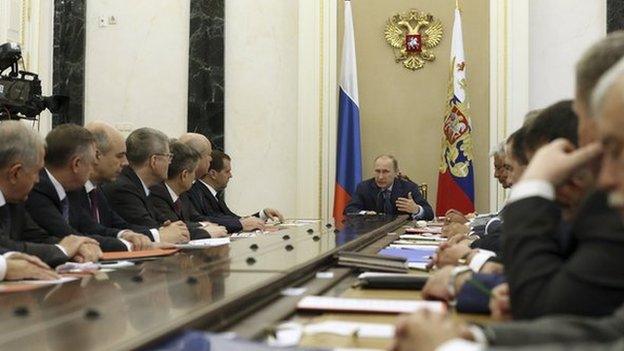
Sanctions now target some top aides of Mr Putin in Russia's powerful Security Council
When Russia began air strikes in Syria in September, it said it was fighting terrorism, targeting so-called Islamic State (IS) fighters. But Moscow also had geopolitics in mind.
And while it clearly had other foreign policy goals, could Moscow now be using its involvement in Syria as leverage over EU sanctions linked to the crisis in Ukraine?
Diplomats in Brussels are adamant that that's just what Russia is doing.
Since IS claimed responsibility for the Paris terror attacks and the downing of a Russian airliner over Sinai, EU officials say Moscow has been working diligently to try to convince individual member states that now is the time to engage with Russia and end its isolation linked to the war over eastern Ukraine.
The official collective position in Brussels, though, is that there will be no trade-off of issues.
The bloc will work hard to engage Russia on many issues without giving up its "very clear position" on Ukraine.
And that will change only when all parts of the so-called Minsk peace agreement are implemented.
But in the current climate that is more a fanciful aspiration than a realistic desire.
Flexible approach
It is nearly two years since the crisis in Ukraine began and the conflict in the east goes on, even though the firing of artillery is sporadic and restricted to specific parts of the front line.
Nine thousand is a conservative estimate of how many people have been killed.
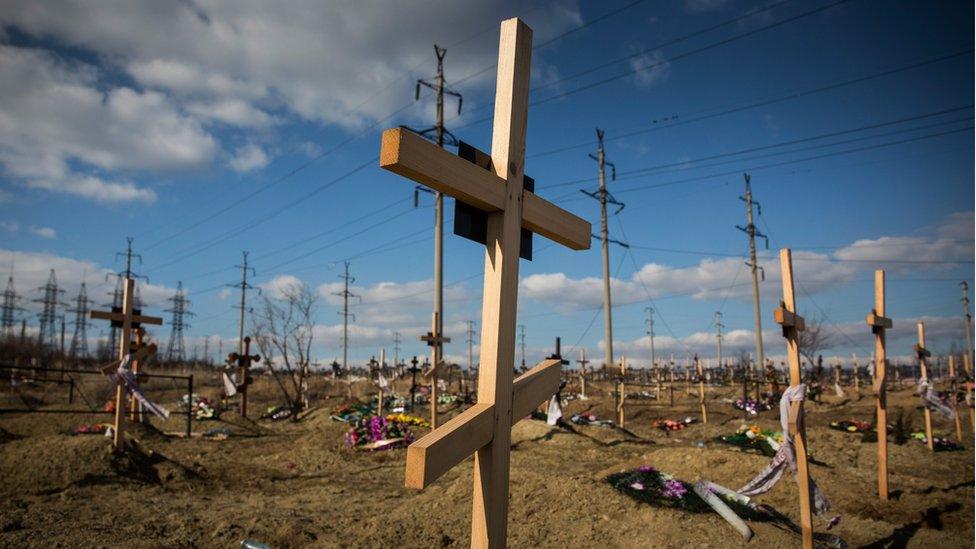
Thousands of people have died in Ukraine since the crisis began
EU sanctions on Moscow are due to be renewed this month for another six months and few in Brussels think that getting the necessary European consensus will be a problem.

EU sanctions on Russia
Russian state banks are excluded from raising long-term loans in the EU
Exports of dual-use equipment for military use in Russia are banned
Future EU-Russia arms deals are banned
The EU will not export a wide range of oil industry technology
Three major state oil firms are targeted: Rosneft, Transneft and Gazprom Neft, the oil unit of gas giant Gazprom, with limits placed on their access to capital markets
Dozens of senior Russian officials and separatist leaders are now subject to Western asset freezes and travel bans

However, wind the clock on a further six months, when the sanctions will be up for renewal again, and it is harder to predict what the thinking of European governments will be.
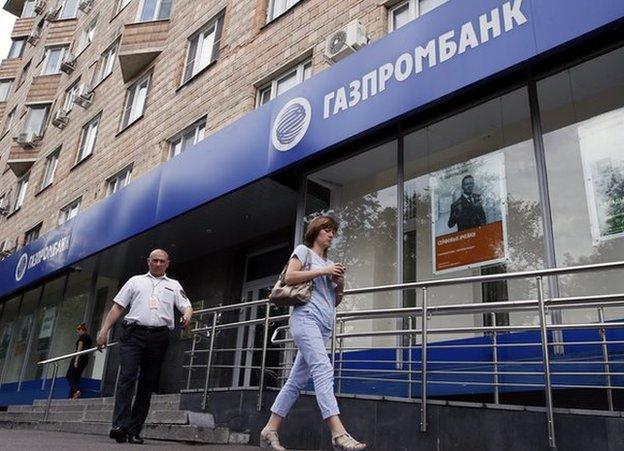
Russian banks now have much less access to Western capital
For a variety of economic and political reasons, southern European nations favour a more flexible approach.
Of the two main players, France wavers more than Germany.
Corruption
Europe's so far unflinching stance over Ukraine - and the alleged involvement of Russia in the war there - is partly explained by a principled protection of Ukraine's sovereignty.
However, the unprecedented EU investment in the country, both in financial and political terms, means Europe's reputation is at stake.
A huge team of European politicians, diplomats and bureaucrats is carrying out what it calls "impressive" reforms to overturn the Soviet-era hangover of bureaucracy, poor governance and ensuing corruption.
Since Ukraine's former President Viktor Yanukovych fled the country in February 2014 after violent demonstrations in Kiev, Ukraine's new European-leaning political class has been on the receiving end of more than €7bn (£5bn; $7.7bn) from the EU in the form of loans and financial support.
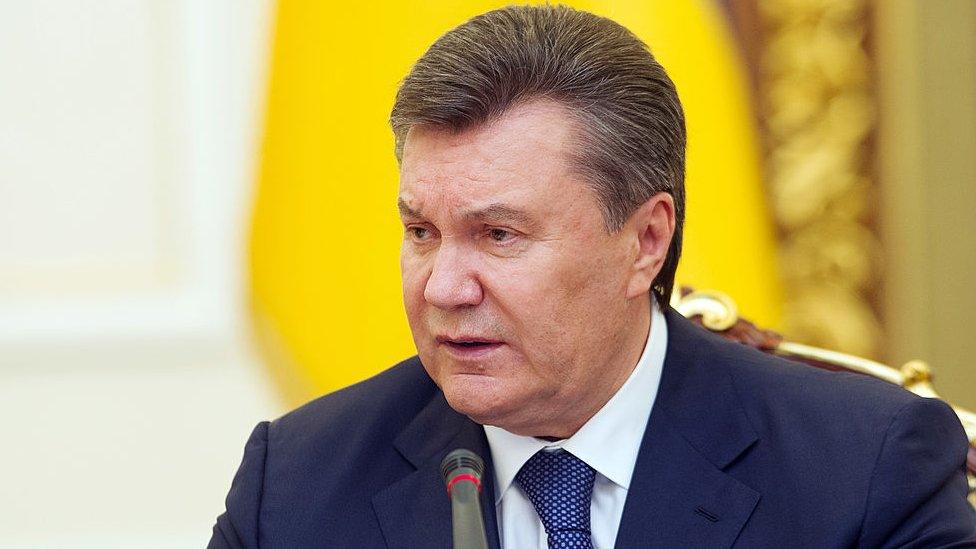
Mr Yanukovych said he had feared for his life when he fled Kiev
If everything goes to plan, that figure will have risen to nearly €13bn over the next few years.
However, the EU's support is conditional: Ukraine has to deliver its side of the deal.
Take corruption. The Ukrainian government has established new anti-corruption bodies but in reality they are still not up and running.
EU officials want to see real results. For example, they expect proper and transparent investigations into cases of fraud, embezzlement and other types of corruption.
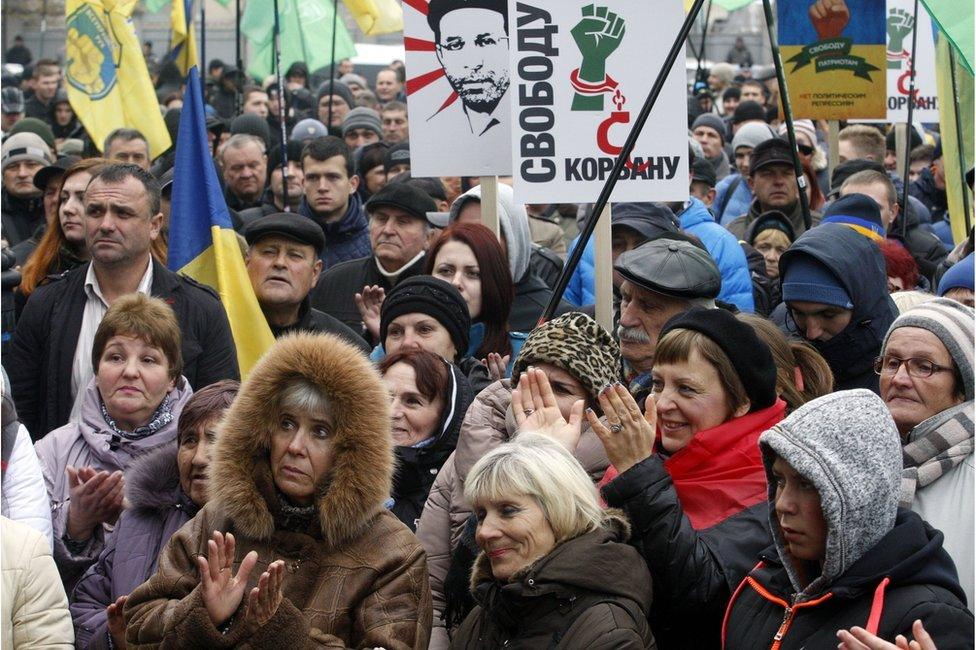
The leader of the centre-left party Ukrop, Guennadi Korban, was arrested in October, sparking protests from his supporters
In Ukraine, justice can no longer be a question of buying off the right prosecutor or judge.
So the European Commission is pushing through reforms of the judiciary - but it cannot be reinvented overnight.
Current officials need to be vetted, corrupt ones fired, and new ones recruited and trained. This all takes time.
Ukraine has also been slashing the number of state-owned agencies, which were supposedly used to regulate the economy or civil society, but in reality were often used to exact bribes.
Trade deal
There are some carrots as well as sticks.
On Tuesday the European Commission is expected to give the green light for Ukraine to be added to the list of countries whose citizens enjoy visa-free travel within the EU. This is expected to come into force by the middle of next year.
And a new free trade agreement between the EU and Ukraine will take effect in January.
Russia claims the deal is damaging to its own interests.
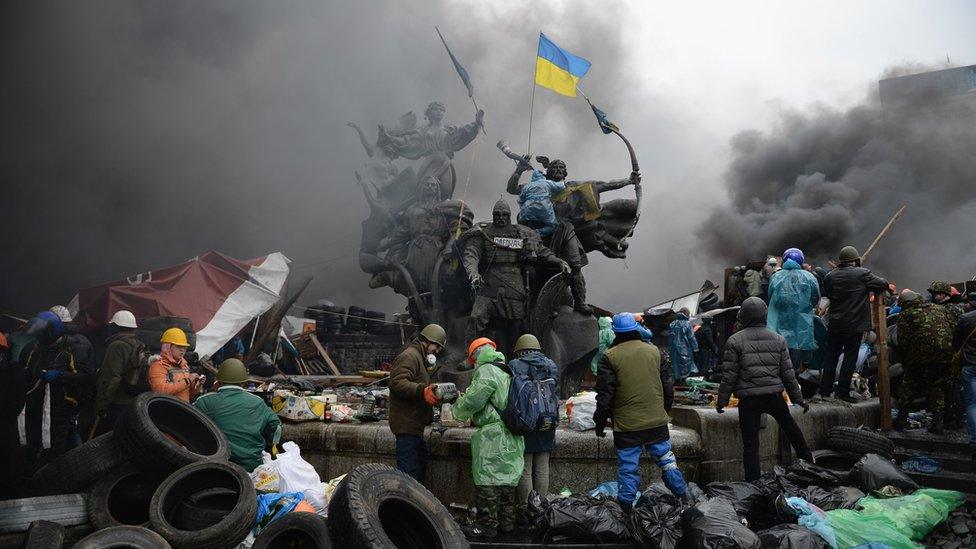
Could the new trade agreement lead to an escalation of violence, similar to the demonstrations that ousted former President Viktor Yanukovych?
European officials say Russia has failed to produce any evidence that this will be the case, and point out that Moscow has been party to 13 rounds of talks on the issue.
So almost two years since former President Yanukovych backed out of an "association" deal with the EU, which sparked the current crisis, the deal is about to take effect.
In October the conflict in the east de-escalated to something resembling a real ceasefire. However, the tit-for-tat exchanges along the frontline, which have characterised the war throughout much of this year, have returned.
All eyes will be on whether this potentially landmark moment in EU-Ukrainian relations will see another escalation of violence.
Brussels believes Moscow has total control over the pro-Russian unrecognised rebel republics in eastern Ukraine.
Moscow denies that. However, Russia clearly has incredible influence in eastern Ukraine, and the ability to prevent, or not to prevent, the conflict from escalating again.